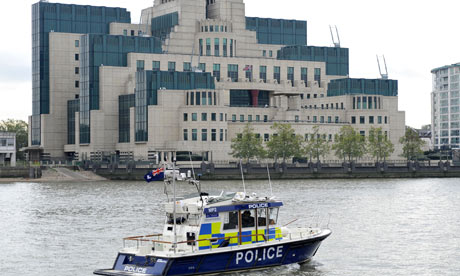MI6 will grow from 2,500 people to close to 3,500 because of the increased strain placed on its operations by the internet and technological developments, according to BBC Newsnight.
In a rare public appearance, the head of MI6 Alex Younger insisted Britain had made significant improvements in the way it tackled terrorism but admitted there was little sign of the "enduring" danger disappearing soon.
MI6 is set to secure the lion's share of additional people for the intelligence services promised by the government in its 2015 Strategic Defence and Security Review. But the BBC says Whitehall sources have confirmed that MI6 is due to get the majority, with the rest to be shared out between the Security Service (MI5), GCHQ and police Counter Terrorism Command.
It follows a string of terrorist attacks on continental Europe over the past 12 months, including the November 2015 attack on Paris, the worst in its history, and the July attack in Nice when a lorry mowed down crowds celebrating Bastille Day.
In March 32 people were killed in twin suicide attacks in Brussels.
It quickly became clear that the hit team had travelled on European passports that had been cloned, and belonged to real people who had visited or were living in Israel.
Intelligence bosses around the world are trying to work out how they can continue to operate covertly in an age where almost everyone in Western societies has left traces on the internet, making it far harder to create fictitious identities.
Facial recognition technology has also reached the point where images - for example of an intelligence officer travelling under an assumed identity - can be easily reverse searched to find pictures posted online under their real identity, before they joined MI6 or the CIA.

The MI6 chief said that the National Security Agency leak by so-called whistle-blower Edward Snowden in 2013 had been "highly problematic".
Snowden took refuge in Moscow after revealing extensive internet and phone surveillance by the intelligence agencies.
Welcome to Watford London UK!
Thanks for stopping by. We welcome your comments.
